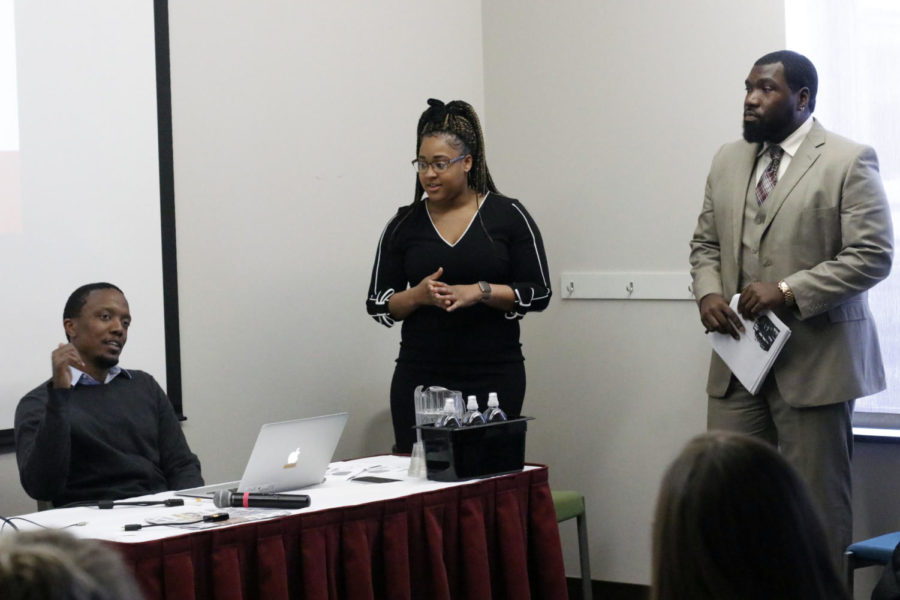2:10 to 3 p.m.: Graduate students in STEM see value in Iowa-Illinois-Nebraska Louis Stokes Alliance for Minority Participation
Gillian Holte/Iowa State Daily
Jocelyn Jackson, Rudisang Motshubi and Blayne Stone present their research on “To be invisible or not: Understanding experiences of underrepresented students in STEM.” The 19th Thomas L. Hill Iowa State Conference on Race and Ethnicity (ISCORE) was held in the Memorial Union Friday. The event focuses on issues of race and ethnicity on a local and national scale.
February 24, 2019
Three graduate researchers, Blayne Stone, Jr, a graduate research assistant in higher education administration; Rudisang Motshubi, graduate research assistant in higher education administration; and Jocelyn Jackson, graduate research assistant in mechanical engineering, gave their perspective on the experiences of underrepresented students in STEM fields.
Their research focused on the Iowa-Illinois-Nebraska Louis Stokes Alliance for Minority Participation (IINSPIRE LSAMP) and how participation in this organization benefitted underrepresented students within STEM fields.
“What we’re interested in is, in terms of LSAMP’s goal — which is to increase participation of underrepresented students — what does that look like from campus to campus?” said Motshubi.
Stone said they asked the 20 students who responded to their email roughly 25 open-ended questions about their experience in their field.
Jackson said that trends in responses included students feeling that their identity often felt like a barrier, but built a sense of community while also providing mentorship for members and encouraging further learning through hands-on practice and group work.
LSAMP led to greater feelings of desire to pursue graduate studies, Stone said, with roughly 80% of those interviewed planning to attend graduate school.







